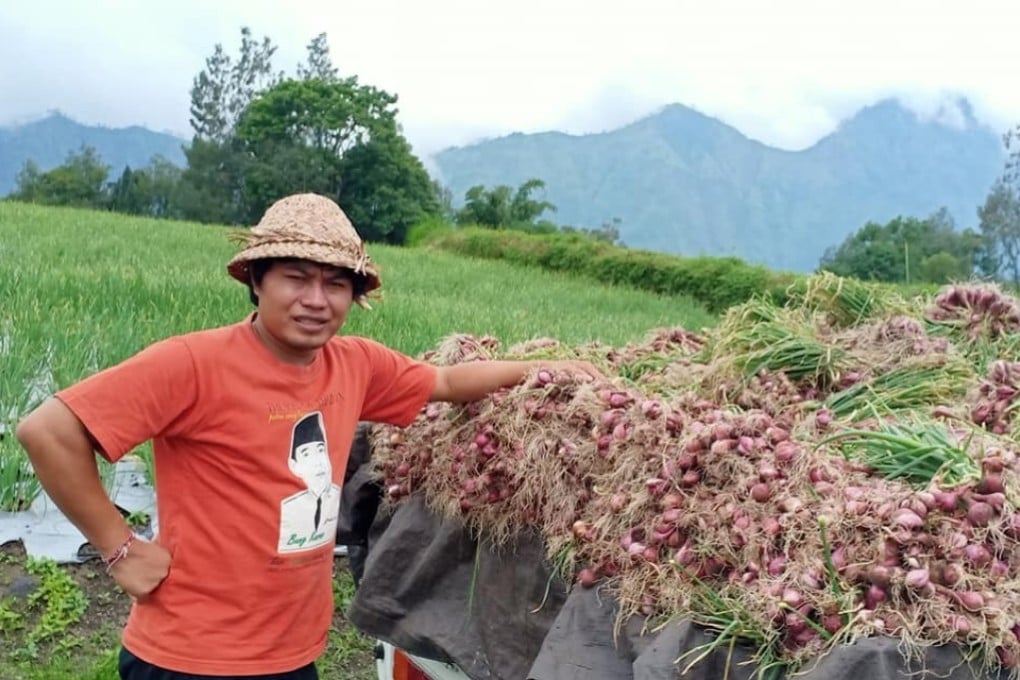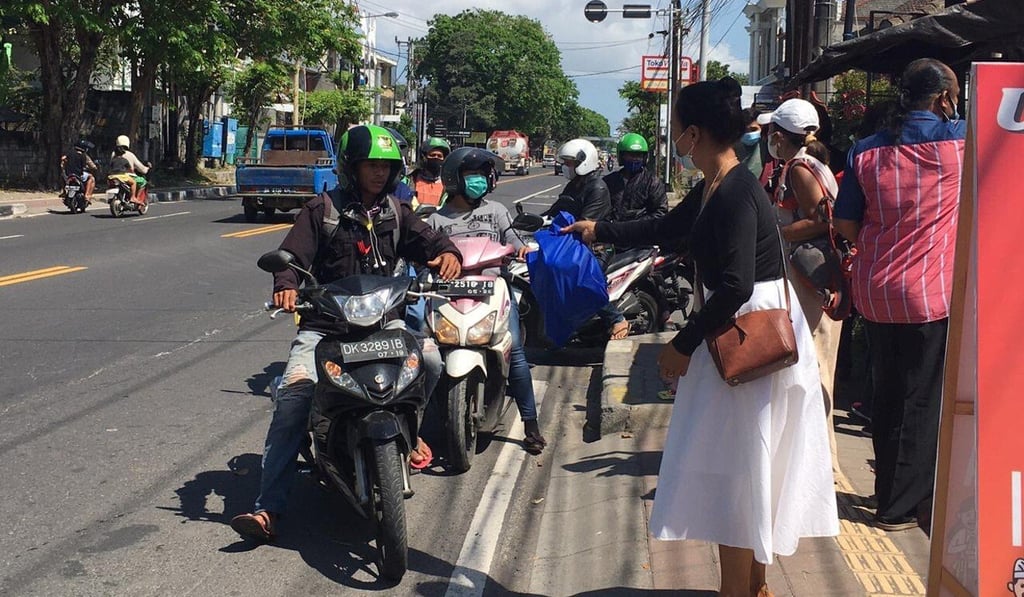Coronavirus: Bali’s farmers hand out free vegetables as tourism dries up
- Bali’s biggest employer – the tourism sector – has been hit hard by the Covid-19 pandemic, but its no. 2 industry is proving more resilient
- Farmers have taken to giving away free produce as a way of supporting the community and boosting the profile of a profession at risk of being abandoned by the younger generation

A group of volunteers in SUVs and pickup cars loaded with reusable blue-cloth tote bags slowly made their way from rural Bali into the island’s urban centres in Ubud. The bags contained a select variety of fresh vegetables and some ground coffee, all locally grown in Kintamani, at the foot of Mount Batur, two hours away from Denpasar. The volunteers then set up stalls by the roadside to hand out the parcels for free to anyone in need.
“This charitable act is our way of showing that farmers in Bali care about the crisis that many of our brothers and sisters in other sectors of the economy are facing now,” said I Komang Sukarsana, 36, co-initiator of the “Free Veggies From Farmers” movement and owner of the Bali Arabica coffee brand.
Tourism and its related industries make up 80 per cent of Bali’s economy. With tourist numbers dropping by as much as 93.24 per cent in April last year, the local economy contracted by more than 10 per cent, forcing almost 75,000 people into joblessness. But agriculture, the island’s second largest industry at 13.5 per cent and which until recently employed almost 20 per cent of the workforce,―has proved more resilient.

